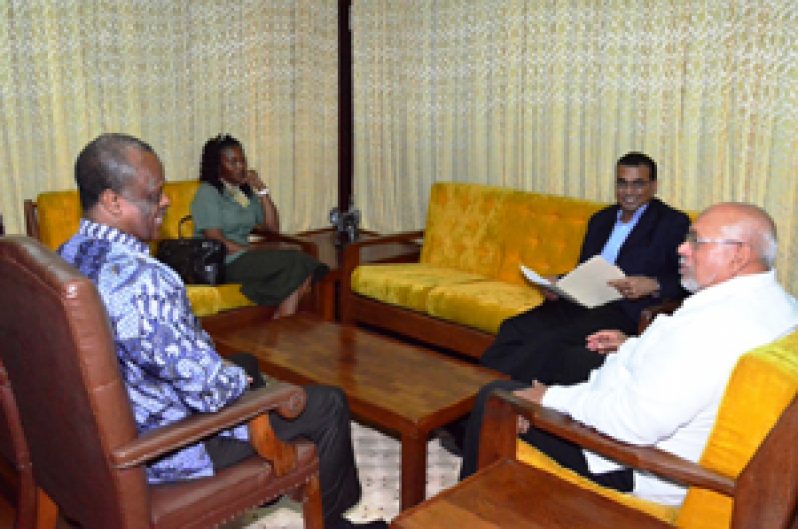THE three countries that met last year during a special summit for rainforest countries in Brazzaville, the capital of the Republic of Congo, are hoping, ahead of a tight schedule, to influence the United Nations Conference on Environment and Development (Rio+20)in Brazil.  Leaders from Guyana, the Republic of Congo, and Borneo-Mekong had signed a declaration at the conference last June which evolved into the Three Basin Initiative, for the protection of their forests as they sought to forge an entity among developing countries with reputably large forest cover, to influence global policy on climate change and earn the right to funding from the sale of forest carbon services.
Leaders from Guyana, the Republic of Congo, and Borneo-Mekong had signed a declaration at the conference last June which evolved into the Three Basin Initiative, for the protection of their forests as they sought to forge an entity among developing countries with reputably large forest cover, to influence global policy on climate change and earn the right to funding from the sale of forest carbon services.
With the Rio+20 Summit just one month away, Minister of Sustainable Development, Forest Economy and Environment in the Republic of Congo, Henri Djombo, returned to Guyana for a meeting with President Donald Ramotar in a resolute bid to approach Rio with a strong alliance.
Minister Djombo also met and held talks with former President Bharrat Jagdeo who was last year appointed Roving Ambassador to forest basins at the conference. Mr. Jagdeo, who acceded to an invitation by Congolese President Dennis Nguesso, was recognised for his astute leadership on environmental issues.
The Congolese Minister visited Guyana on two occasions in 2011 on a fact-finding mission, particularly in the area of forestry, and was impressed and encouraged by the forestry related initiatives of the Government of Guyana.
With the guidance of the Ministry of Agriculture and the Guyana Forestry Commission, the Congolese Minister gained a wealth of knowledge about the country’s Low Carbon Development Strategy (LCDS) model.
In August last year, a delegation from the Republic of Congo came to Guyana with an invitation for the Guyana Government to participate in an International Woodhouse Exposition.
Central to the upcoming Summit which runs June 20 to 22, is a green economy in the context of sustainable development and poverty eradication; but, as world leaders prepare to meet, President Ramotar has already called for fundamental sustainable development challenges crucial to achieving such an economy to be prioritised.
During his intervention on the Rio+20, President Ramotar, speaking at the II Caricom-Mexico Summit on May 21, said a green economy framework can play a critical role in rehabilitating the economies of CARICOM member states which continue to be negatively affected by the 2008-2009 global financial and economic crises.
He said member states have been and are interpreting the green economy concept according to their national sustainable development priorities and national economic and social conditions.
“Several of our member states have developed, or are in the process of developing, sectoral policies, sustainable development strategies, strategic and medium term planning programmes and natural resource management frameworks that serve as the basis for a greener, low-carbon economic transition, and, at the same time, address the issue of poverty eradication and the broader goal of sustainable development,” said President Ramotar at the CARICOM Mexico summit.
Tourism, health, oceans, climate change and energy are among the priority for CARICOM, but other developing countries are calling for an additional negotiation session to ensure a successful and mutually satisfactory outcome of the Rio+20. (GINA)




.jpg)









